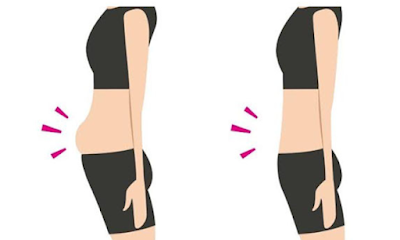Signs That Your Period is Coming Tomorrow: Understanding Your Menstrual Cycle
Understanding the signs and symptoms that signal the approach of your menstrual period is crucial for managing your reproductive health. While the specific timing and symptoms can vary among women, there are several common indicators that your period is imminent.
In this informative blog post, we will explore the various physical and emotional signals that suggest your period is just around the corner. By recognizing these signs, you can take proactive steps to care for yourself during this time and make your menstrual cycle more manageable.
Changes in Your Basal Body Temperature:

By monitoring your BBT using a basal thermometer, you can identify this pattern and anticipate the arrival of your period. The decrease in BBT indicates a decline in progesterone hormone levels, triggering the shedding of the uterine lining and the onset of your period.
Breast Tenderness and Swelling:

Many women experience breast tenderness and swelling in the days leading up to their period. This symptom, known as mastalgia, is caused by hormonal fluctuations, specifically an increase in estrogen and progesterone levels.
These hormonal changes can make your breasts sensitive, painful, or swollen. Some women may also notice their breasts feeling heavier or lumpier than usual.
Applying a warm compress, wearing a supportive bra, and avoiding caffeine and salty foods can help alleviate breast discomfort.
Mood Swings and Emotional Changes:

Emotional changes are a common feature of premenstrual syndrome (PMS) and can serve as an indication that your period is approaching.
Hormonal fluctuations during this time can affect neurotransmitters like serotonin and dopamine, leading to mood swings, irritability, anxiety, or even depression.
The intensity of these emotional changes can vary, impacting your daily life. Engaging in self-care practices, such as meditation or yoga, and maintaining a balanced lifestyle can help manage these symptoms effectively.
Bloating and Water Retention:
Feeling bloated and experiencing water retention are frequently reported symptoms in the days preceding menstruation.
Hormonal fluctuations can disrupt your body's fluid balance, resulting in fluid retention and abdominal bloating. You may notice your clothes feeling tighter, and a slight increase in weight due to water retention.
To reduce bloating and alleviate discomfort, it is advisable to reduce your salt intake, stay well-hydrated, and engage in light physical activity.
Increased Fatigue and Low Energy:

Fatigue and low energy levels are often experienced by women nearing their periods. Hormonal changes can disrupt sleep patterns and affect the quality of your rest, leaving you feeling tired and lethargic during the day.
Additionally, iron deficiency and anemia, which are common among women, can exacerbate these symptoms. Prioritizing sufficient sleep, maintaining a balanced diet rich in iron, and managing stress levels through relaxation techniques can help combat fatigue and boost your energy levels.
Conclusion:
Recognizing the signs that your period is approaching enables you to plan and manage your daily activities more effectively. While the symptoms discussed in this blog post are commonly experienced, it is important to remember that each woman's experience is unique.
By tracking your menstrual cycle, adopting a healthy lifestyle, and seeking professional medical advice for severe or disruptive symptoms, you can promote a smoother menstrual cycle.
Understanding and embracing these signs empower you to navigate through your period with greater ease while caring for your overall well-being.




Comments
Post a Comment